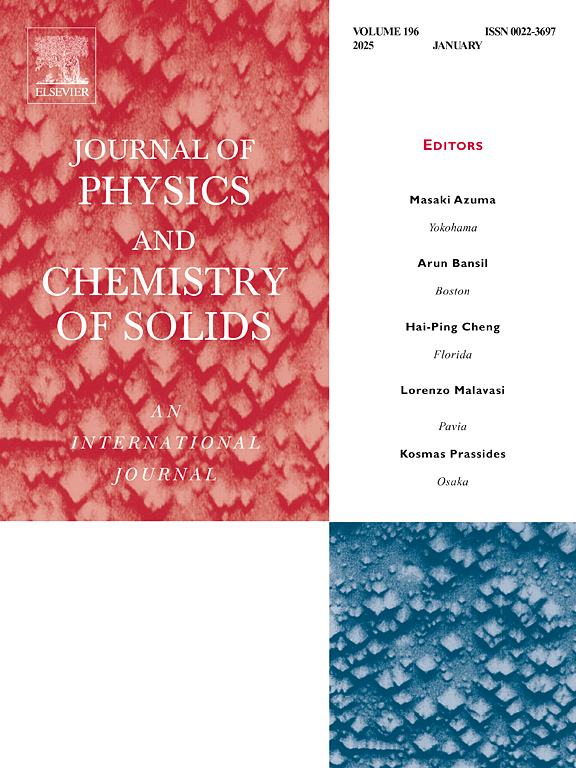Numerical simulation study of lead-free perovskite solar cells using bifunctional molecule CBz-PAI as interfacial layer
IF 4.3
3区 材料科学
Q2 CHEMISTRY, MULTIDISCIPLINARY
引用次数: 0
Abstract
The urgent demand for sustainable energy solutions has accelerated research into perovskite solar cells (PSCs), which are emerging as a promising alternative to conventional photovoltaics due to their high efficiency and cost-effectiveness. However, the widespread use of lead in most efficient PSCs presents serious environmental and health concerns, severely limiting their potential for large-scale industrial application. To address these challenges, this study proposes a lead-free tin-based PSC incorporating a bifunctional carbazole-based derivative, CBz-PAI, as an interfacial layer. The multifunctional properties of CBz-PAI enable it to effectively optimize interfacial energy level alignment, passivate defects, and improve charge transport. These effects were systematically analyzed using SCAPS-1D simulations, with additional evaluation of the device's thermal stability and performance under varying temperatures. The results demonstrate that the introduction of CBz-PAI significantly enhances device efficiency by reducing interfacial charge recombination and improving solar energy harvesting, achieving an impressive power conversion efficiency (PCE) of 29.33 %. Furthermore, the structure demonstrates excellent thermal stability, thus underscoring the viability of tin-based PSC as a lead-free alternative. This work underscores the potential of carbazole derivatives in advancing environmentally friendly PSC technologies and provides a foundation for future experimental and theoretical research into high-performance lead-free photovoltaics.
求助全文
约1分钟内获得全文
求助全文
来源期刊
CiteScore
7.80
自引率
2.50%
发文量
605
审稿时长
40 days
期刊介绍:
The Journal of Physics and Chemistry of Solids is a well-established international medium for publication of archival research in condensed matter and materials sciences. Areas of interest broadly include experimental and theoretical research on electronic, magnetic, spectroscopic and structural properties as well as the statistical mechanics and thermodynamics of materials. The focus is on gaining physical and chemical insight into the properties and potential applications of condensed matter systems.
Within the broad scope of the journal, beyond regular contributions, the editors have identified submissions in the following areas of physics and chemistry of solids to be of special current interest to the journal:
Low-dimensional systems
Exotic states of quantum electron matter including topological phases
Energy conversion and storage
Interfaces, nanoparticles and catalysts.

 求助内容:
求助内容: 应助结果提醒方式:
应助结果提醒方式:


